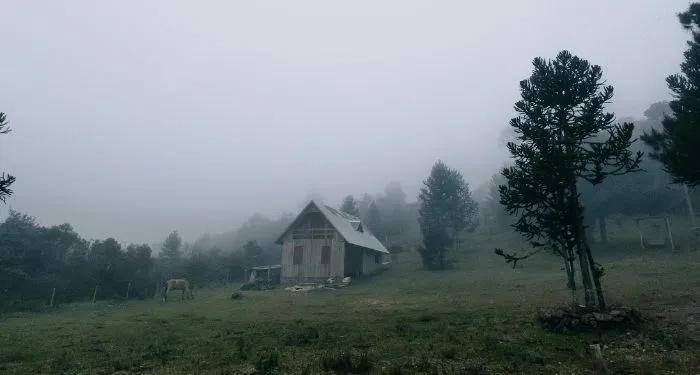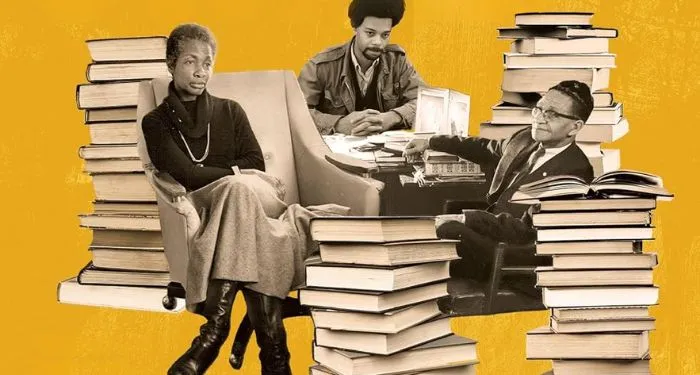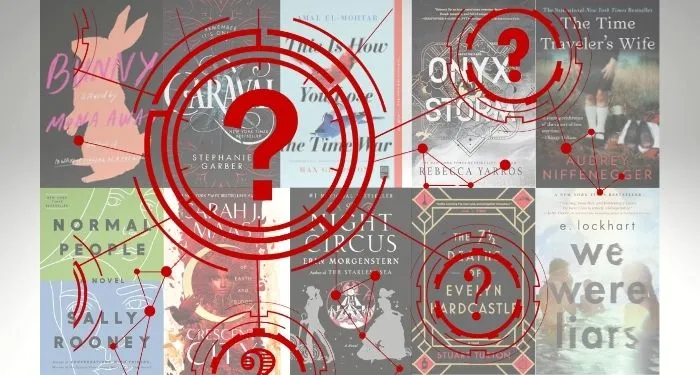Since her career began in the mid-1990s, Kelly Reichardt has directed nine feature films, all modest in scope and budget and often willfully disinterested in the norms and conventions of mainstream American filmmaking. Emphasizing compression, subtlety, and elision, they leave you not with a satiated feeling but with a gnawing, sometimes bittersweet sensation of disquiet. Their closest literary analogue might be the minimalist short stories predominant in the last half-century of American fiction, several of which have furnished Reichardt with source material over the years: Old Joy (2006), about two friends struggling to reconnect during a camping trip, and Wendy and Lucy (2008), about a woman and her dog stranded by car trouble on their way to Alaska, originated in Oregon-set stories by Reichardt’s frequent collaborator Jon Raymond, with whom she has also cowritten original screenplays; three short stories by Maile Meloy became the basis for Certain Women (2016), about the desires and frustrations of four emotionally isolated women living in Montana.
In each of these films Reichardt carves already spare material into an even leaner shape. Raymond’s “Old Joy” is narrated by one of the two friends, and its naturalistic dialogue is punctuated with moments of interiority: “A cryptic smile came onto his face, full of some deep meaning he refused to put into words. I had forgotten the mild struggle we fell into every time we found each other again.” In Reichardt’s adaptation we have only the dialogue and the actors’ clouded looks of longing. The “deep meaning” is further obscured, and any interiority is left for us to guess at.
Reichardt’s latest film, The Mastermind, is her first feature neither with Raymond involved nor adapted from fiction since her 1994 debut, River of Grass. A period piece set in 1970, it follows a perpetual idler and art school dropout named James “J.B.” Mooney, played with a comic transparency by Josh O’Connor, as he plans and then disastrously executes an art heist with a few local accomplices in Framingham, Massachusetts. They target four paintings in the city’s museum by Arthur Dove, an American artist noted for his early use of abstraction. The heist occurs relatively early in the movie, at which point it shifts into a narrative of sluggish, shambolic escape.
The openness O’Connor lends to Mooney is all emotional—when he succeeds in gathering funds for the heist by conning his mother (Hope Davis) into financing a nonexistent carpentry job, his self-satisfaction leaks out for a moment over his face. But the character’s motives are never fully revealed to us. He tells his accomplices he intends to flip the paintings for cash, but it’s clear that some deeper, more destructive drive compels him.
*
Reichardt’s mother worked as a narcotics agent, her father as a crime scene technician, and crimes both minor and large regularly feature in her work. These acts of theft, destruction, or violence are usually committed out of moral conviction or as a means of survival: the radical environmentalists in her eco-thriller Night Moves (2013) bomb a hydroelectric dam (and inadvertently kill a man) for the sake of their cause; the gentle milk thieves in her frontier drama First Cow (2019) pilfer dairy from a wealthy trader in an attempt to lift themselves out of poverty and build a new life.
Mooney has no such apparent need to place himself in peril. He is unemployed, but his wife, Terri (Alana Haim), has a job that brings in money; his father (Bill Camp) is a respected and assumedly well-off judge; and he’s evidently able to lean on his mother for financial support whenever he needs it, though his mooching habits seem to be wearing on everyone in his life. His problem is that he can’t see outside himself: he is a man blinkered by his own pale ideas of his life’s possibilities. In one scene around the family dinner table, his father pointedly mentions that one of Mooney’s peers, Kip, oversees a carpentry business with “projects all over town.” Mooney has similar skills, but this pursuit doesn’t appeal to him: Kip “spends all his time balancing books, scheduling, on the phone. It’s an idiotic way to spend your time.” Mooney claims he has no desire to supervise the work of other people, to be a manager. The irony is that a manager is exactly what he hopes to become.
Though his plan quickly unravels—as plans almost always do in heist films, even heist films featuring thieves much sharper than Mooney—his initial role in the theft, as the movie’s title suggests, is simply to be its “mastermind.” He haunts the museum day after day, surveying its layout and drawing a floor plan and illustrations of the Dove paintings for his lackeys to reference. He provides money, a meetup spot (the basement of his family’s suburban home), even pantyhose to wear as disguises, but he intends to do as little of the dirty work as possible. When Larry Duffy (Cole Doman), the getaway-driver-to-be, who has a healthy amount of skepticism toward Mooney, asks why he’s not taking part in the actual heist himself and how he plans to sell the stolen paintings, Mooney shrugs off his doubts. As one might expect, Larry bows out of the plan, and the boss is left to drive the getaway car himself.
After Mooney’s two remaining accomplices blunder through the theft, pulling a gun on a schoolgirl at the museum and tussling with a security guard posted by the front door, Mooney savors his success in the comfort of his living room, replacing a framed piece of decor above the couch with one of the Doves. Again self-satisfaction shows plainly on his face: he only seems to display any gratification in these moments when he’s convinced that he’s made someone else the fool, when he takes a private pleasure in a purloined public good.
Not long after, Reichardt lingers on an extended scene of Mooney hiding the paintings in the hayloft of a barn outside of town. The paintings being too heavy to carry all at once, he instead hefts them two at a time up a rickety ladder, a pig snuffling in its pen behind him. As soon as the ladder appears onscreen, we can guess the inevitable. Mooney can only vault himself above the pig—above the rabble—for so long. Sooner or later he has to fall down to earth.
The Mastermind loses some of its propulsive tension in the aftermath of Mooney’s scheme, when he leaves Framingham to evade arrest. But this is also when the film gains the quiet grace that is Reichardt’s undeniable signature. Both of Mooney’s accomplices have already sold him out: hothead Ronnie Gibson (Javion Allen) pins the heist on Mooney after being caught by the police for an unrelated bank robbery, and the dopey, curly-haired Guy Hickey (Eli Gelb) makes a deal with a trio of ruffians—cartoonish men who bring to mind the oafish gangsters from Looney Tunes—to steal the paintings from the original thief. Driving a car borrowed from an unquestioning neighbor, dropping off one of his sons at his parents’ house on the way, Mooney heads to the bus station and buys a ticket south. When he arrives at the rural home of two art school friends, Fred and Maude (John Magaro and Gaby Hoffmann), the film settles into a much more low-key, even improvisatory, register. Mooney doesn’t know where to go or what to do. We follow along as he attempts to make up an escape for himself.
*
Visually, The Mastermind is one of the most plainly attractive films of Reichardt’s career, and this slower pace allows us to appreciate its grainy, autumnal look. Along with Christopher Blauvelt, her regular cinematographer since her historical Western Meek’s Cutoff (2010), Reichardt crafted a palette inspired by the photographs of Stephen Shore and the work of the cinematographer Robby Müller on Wim Wenders’s The American Friend (1977). The landscapes she captures are eerily depopulated, inhabited mostly by cars, bare windows, faded pavement, and deserted, yellowish storefronts. But this emptiness also evokes an endlessness, and at times even a sense of tranquility. As Mooney and Fred walk together down a country road during a light snow shower, it feels as though the film itself takes a breath of rest.
That isn’t to say that all energy completely vanishes from the plot at this point. Mooney’s name is in the papers, Maude is uncomfortable having him stay for long at their house, and it’s apparent he’ll soon have to move on. As Mooney waits for his bus out of town, Fred suggests that he flee to Canada and seek out Fred’s brother, who is living on a farm commune. But by now we know Mooney would never be comfortable with collective living: “Me, in a commune?” he says. “Who’s he got up there, a bunch of draft dodgers?” One of the many open questions in the film is how he dodged the draft himself.
What follows is a quick, unsuccessful stop in Cleveland and then a concluding sequence in Cincinnati, where Mooney’s flight is finally halted—but not in the way you’d anticipate. Reichardt has always had a talent for eluding her audience’s expectations, denying any sort of heightened drama in favor of a humbler realism, and often truncating her narratives at their most confounding points. River of Grass ends with its protagonist stuck in traffic after committing an abrupt and wordless murder; Meek’s Cutoff with its cast of pioneers possibly as lost as they were at the beginning, or possibly saved; and First Cow with its two main characters lying down for a rest and presumably about to be murdered, though we don’t see the act. Here Reichardt closes the film on a shot of policemen after they’ve violently broken up a peace rally, Mooney having been mistaken for a protester and driven off in a paddy wagon. One of the cops picks up a marcher’s fallen hat with his billy club, dons the hat himself, and does a mocking little dance with it. Rather than a tidy conclusion, we’re given a poignant and unsettling joke.
The Mastermind is backed throughout by a lively, percussion-forward score by the composer Rob Mazurek that at times hearkens back to 1960s caper and spy thriller films, suggesting how Mooney views himself and his situation. But Reichardt’s film is more interested than the standard heist movie in what happens around the action. It takes place as the US expands the Vietnam War into Cambodia, setting off a new wave of demonstrations stateside. Reichardt seems to feel a certain freedom fudging the timeline—in the first ten minutes, for example, we glimpse a news broadcast about the 1972 student antiwar occupation at Columbia—but she also seems intent on stressing the social and political backdrop against which Mooney’s story plays out. This emphasis occasionally tips over into heavy-handedness and even cliché, a rarity for Reichardt: we see footage on TV screens of an American flag waving over the national anthem and soldiers fighting in Vietnam, and Guy has an eye-rolling line about the “weird times” they’re living through. But these insistent signifiers also serve to undercut the fantasy of escape to which Mooney clings.
Reichardt has in a sense always been a political filmmaker, less interested in crafting an accurate portrait of an era than examining how the past reflects our present and how broad-scale forces and events filter through the lives of everyday people. Meek’s Cutoff has been described—including by Reichardt herself—as a critique of the American invasion of Iraq and Afghanistan, with the arrogant fur trapper Stephen Meek as a stand-in for Bush, guiding his group of settlers on a brutal and fruitless journey into the desert. Wendy and Lucy, released in the midst of the Great Recession, depicts a character on the edge of total destitution and the casual cruelty she endures from townspeople concerned only with keeping money in their pockets and holding onto their jobs. First Cow, filmed during the first Trump presidency and released on streaming platforms during the Covid lockdowns, illustrates the insurmountability of the American class divide, even in some of the country’s earliest years and for some of its scrappiest and most enterprising fellows. Though they vary widely in plot and setting, all of Reichardt’s films evince a quiet conviction about the near impossibility of rising above one’s circumstances in a culture that valorizes individual rather than collective prosperity.
The Mastermind, meanwhile, invites ample comparison to our present moment—images of US-funded bloodshed streaming in from abroad, protests filling the streets, and an ever-present question hanging in the air: how can we hold onto our world and our humanity if we maintain the status quo? Mooney wants to break from the status quo of his own life—his responsibilities as a father and husband, his comfortable existence in the suburbs, his reliance on his wife and parents—by doubling down on his belief in his own specialness, or separateness, from other people. And yet this path only further entangles him in a system of dependence: during the last call we see him make to Terri, he slides from offering her a hollow apology to pleading once more for cash. Terri rightly hangs up on him, and he ends up stealing a loaded wallet from an elderly woman he spots in a diner the next day. When he steps into the passing protest to hide in the crowd, Mooney drops the now-empty wallet and is noticed by one of the marchers, who rushes to return the item to Mooney’s hands—and is promptly billy-clubbed by a policeman. Even though it leads to Mooney’s capture, the marcher’s small and misguided gesture feels noble, an offhand act of care for another person in a film driven by self-concern.
Perhaps the most striking scene in the movie is one of its briefest, a lightly surreal vision that comes to Mooney while he rides the bus to Ohio. Leaning against his window, the dark night outside, he watches a man in a Navy uniform seated a row ahead next to his wife and infant child—or maybe they’re just a traveling pair that the man happened to meet. The man takes off his sailor cap and places it on the baby’s head, and the baby smiles. Then the scene cuts to the next morning, Mooney having apparently dozed off. Looking over, he sees only the woman and her child, the man now nowhere in sight. Reichardt leaves us to wonder: did we witness a dream of Mooney’s, an expression of his guilt over leaving his family behind? Or was it some sort of oblique political gesture, the man inducting the child into the manner of American life? Or maybe it was exactly what it seemed to be—a man putting a hat on a baby because it’s funny to put a hat on a baby. Whatever the scene’s meaning, Mooney doesn’t dwell on it. He gets off the bus and starts looking for a place to go.






















 English (US) ·
English (US) ·